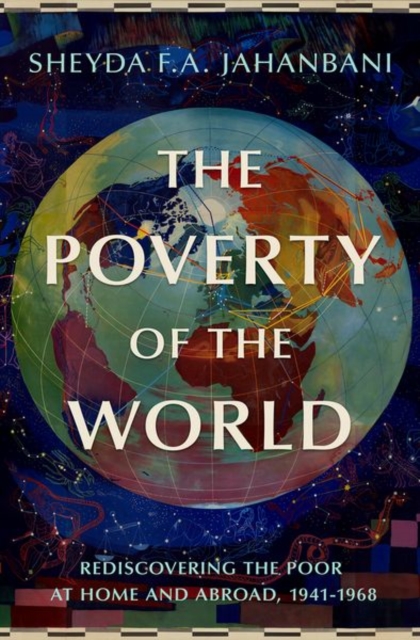In the middle of the twentieth century, liberal intellectuals and policymakers in the United States came to see poverty as a global problem. Applying Progressive era and Depression insights about the causes of poverty to the post-World War II challenges posed by the Cold War and decolonization, they developed new ideas about why poverty persisted. The problem, they argued, was that the poor at home and abroad were alienated from the enormous opportunities industrial capitalism provided. Left unsolved, that problem, they believed, would threaten world peace.
In
The Poverty of the World, Sheyda Jahanbani brings together the histories of US foreign relations and domestic politics to explain why, during a period of unprecedented affluence, Americans rediscovered poverty and supported major policy initiative to combat it. Revisiting a moment of triumph for American liberals in the 1940s, Jahanbani shows how the US's newfound role as a global superpower prompted novel ideas among liberal thinkers about how to address poverty and generated new urgency for trying to do so. Their sense of responsibility about deploying American knowledge and wealth as a beneficent force in the world, produced such foreign aid programs as the Peace Corps. As Americans came to recognize the problem beyond the country's borders, they turned the idea of "underdevelopment" inward to explain poverty in urban neighborhoods and rural communities at home, inspiring Lyndon Johnson's War on Poverty and his domestic peace corps, Volunteers in Service to America (VISTA).
Drawing on a wide variety of archival material, Jahanbani reinterprets the lives and work of prominent liberal figures in postwar American social politics, from Oscar Lewis to John Kenneth Galbraith, Michael Harrington to Sargent Shriver, to show the global origins of their ideas. By tracing how American liberals invented the problem of "global poverty" and executed a war against it,
The Poverty of the World sheds new light on the domestic impacts of the Cold War, the global ambitions of American liberalism, and the way in which key intellectuals and policymakers worked to develop an alternative vision of US empire in the decades after World War II.











